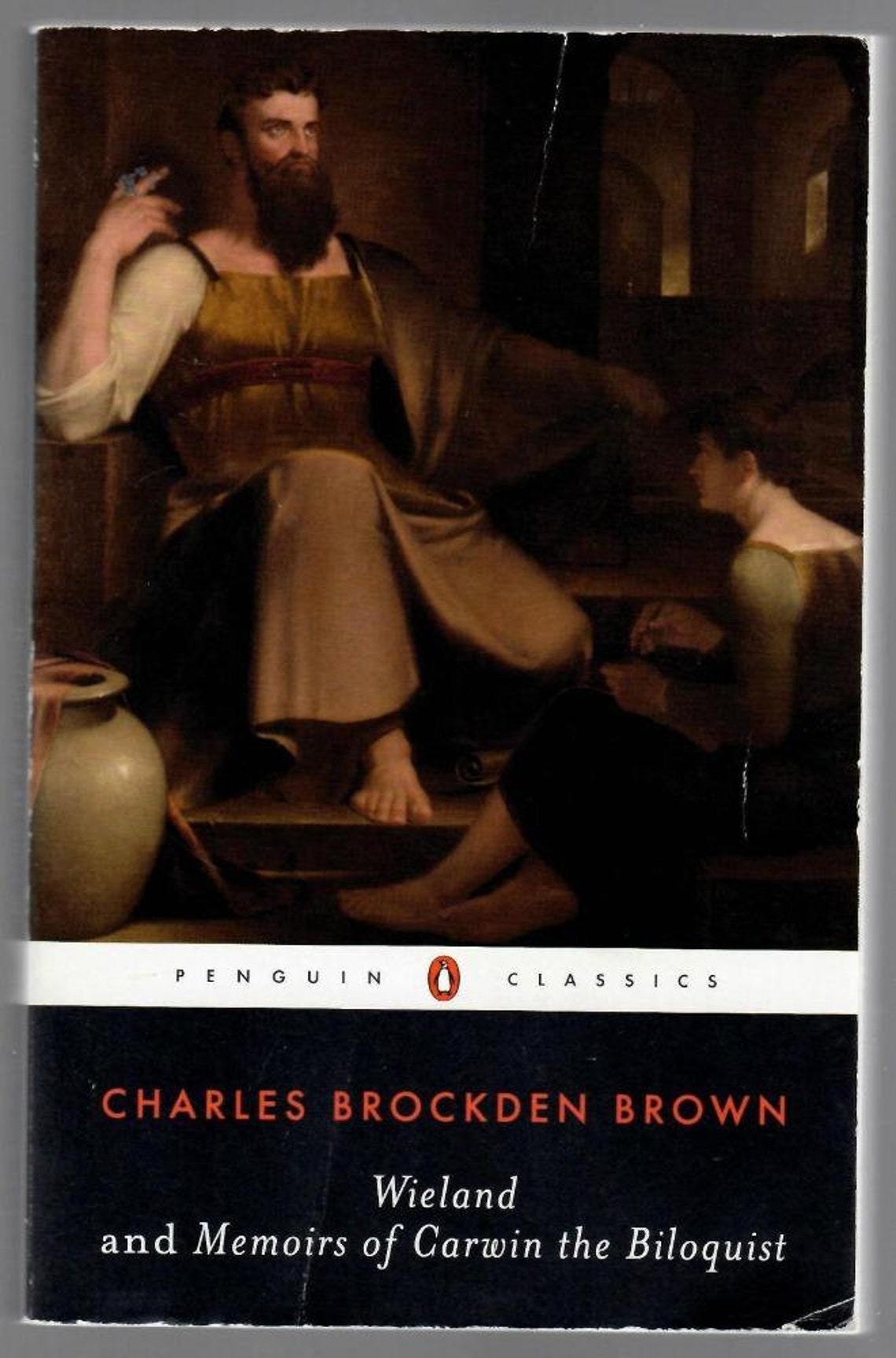
The book proper is about Clara Wieland and her brother Theodore and how they are plagued by occasional voices from nowhere, and how the sister is both attracted to and repelled by an odd but charismatic and beautifully voiced young man named Francis Carwin. The father is a religious oddball, so that may have some tonal import. This is unimportant to the main plot, really, or at least unrelated in a factual sense. He goes to worship in his specially built temple in the hills north of Philadelphia and pretty much explodes violently. Okay, so, that out of the way, WIELAND is famous for being an American Gothic novel - why? Because, let's see, the main characters' father spontaneously combusts in the first chapter - and this isn't any Dickens "they found nothing but a heap of ash", after-the-fact kind of thing. You could spend your time on much better stuff, unless you have a particular interest. The central idea is interesting but (and please know that I am quite an apologist for older writing styles) - the writing is enervating and the story not too well told. So, should a casual reader read WIELAND? No, not really. I'm going to reverse my usual approach to these things and give my opinion first, because what little joy can be gleaned from reading WIELAND comes from it's surprises and I'll probably give those meager joys away. I read it as part of a general overview I've taken on of the Gothic novel and so, being a "root of American Gothic" novel, here it was and so I read. Perhaps some read it because of interest in a particular aspect (religious mania, biloquisim as portrayed in popular culture.God knows). Most are probably assigned it for a class. I'll bet a lot of people read it because it's a very early example of the "American Novel".




I read WIELAND: OR THE TRANSFORMATION for different reasons than I think the majority will read it.


 0 kommentar(er)
0 kommentar(er)
